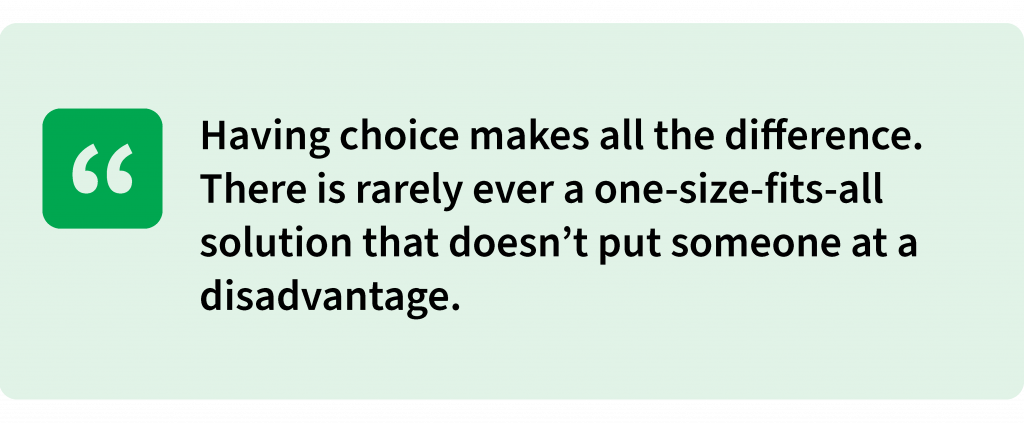11 Navigating a Teaching Lab with a Mobility Disability

By Victoria Ogden
 I started university a few years ago and remember a big shift from my high school teachers being invested in my learning to feeling left to fend for myself. As a young adult, I appreciated the freedom, but over time, I could feel the lack of support negatively impacting my learning. It wasn’t until the end of my third year that I was diagnosed with mobility disabilities and chronic pain. I eventually found the support of the disability office who have helped find some accommodations for me, but I continue to face challenges as a disabled chemistry student.
I started university a few years ago and remember a big shift from my high school teachers being invested in my learning to feeling left to fend for myself. As a young adult, I appreciated the freedom, but over time, I could feel the lack of support negatively impacting my learning. It wasn’t until the end of my third year that I was diagnosed with mobility disabilities and chronic pain. I eventually found the support of the disability office who have helped find some accommodations for me, but I continue to face challenges as a disabled chemistry student.
There have been times where I’ve felt that science isn’t for people like me because of professors who have articulated this both directly and indirectly through going to great lengths to not accommodate me. I try to lean into the guidance of professors who instead want to become better teachers to everyone. The difference in attitude can be striking. I hope that an emphasis in teaching continues to grow in value alongside research in appointment decisions. This attitude does permeate down into what students with disabilities experience.
One of my most challenging experiences was when I missed an organic chemistry lab at the start of the semester. The lab coordinator couldn’t arrange for a make-up lab session and wouldn’t agree to reduce some of the content, and I was told to work twice as hard in the next lab session. The lab was six hours long and I did not stop for food, water, or a break even once. The experience was incredibly stressful, caused an illness flare up, and I overall regret not standing up for my health more. I ended up having to drop the lab course.
On the other hand, I really appreciate the professors that go the extra mile and brainstorm different solutions with me when I am ill and miss a midterm or an assignment. Sometimes this means make-up assignments, shifting the weights, or assessing through different (but equivalent) formats. Having choice makes all the difference. There is rarely ever a one-size-fits-all solution that doesn’t put someone at a disadvantage.

